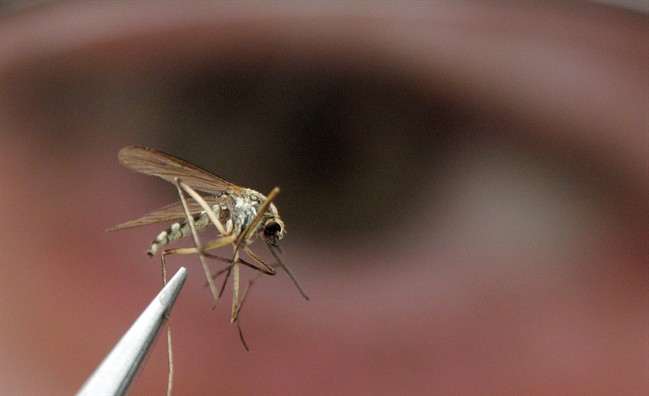Hamilton’s Medical Officer of Health (MOH) has bumped up the risk level of contracting West Nile Virus (WMV) in the city from moderate to high.

In a release on Tuesday, Associate MOH Dr. Bart Harvey revealed the first case of WNV for 2019 in addition to a reported positive test of eastern equine encephalitis (EEE) virus in a horse.
Although the risk of symptoms from WNV are low for most people, Harvey says older adults or those with weakened immune systems may experience West Nile fever more severe issues including inflammation of the brain or the lining of the brain.
The MOH says if symptoms do occur, they usually appear two to 14 days after being bitten by an infected mosquito.
“It is important to take precautions to avoid illnesses spread by insects including West Nile Virus, Lyme disease, and eastern equine encephalitis,” Harvey said.
“Employing simple preventive measures such as using insect repellent containing DEET or Icaridin, covering up, and removing standing water on your property to prevent mosquito breeding will reduce your risk while you enjoy the outdoors.”
WATCH: Hamilton Public Health Inspector Jane Murrell with an update on the city’s viral insect population.

Hamilton Public Health regularly tests insects for all three viral infections. The agency has completed three rounds of larviciding treatments on city street catch basins in 2019 and continues to treat surface waters on public land.
In August, the city found its first batch of West Nile positive mosquitoes prompting the MOH to increase the risk level from low to moderate.
Despite the increase in the risk level, 2019 is reporting positive numbers in relation to the reported case of WNV compared with recent years. In 2012, Hamilton had confirmed 20 cases of the affliction in humans with one death. Numbers since then have declined significantly with just six reported cases in 2018 and no deaths.
Hamilton Public health says the risk of the aforementioned infections are expected to drop once there is a heavy frost which should reduce the city’s mosquito population.
- Buzz kill? Gen Z less interested in coffee than older Canadians, survey shows
- ‘She gets to be 10’: Ontario child’s heart donated to girl the same age
- Bird flu risk to humans an ‘enormous concern,’ WHO says. Here’s what to know
- Naloxone-resistant street drug linked to 9 deaths in Eastern Canada seized in Alberta




Comments